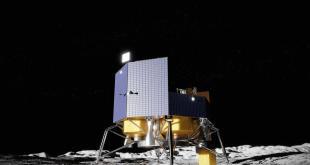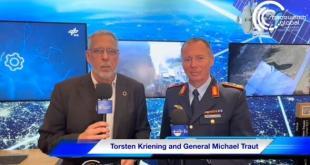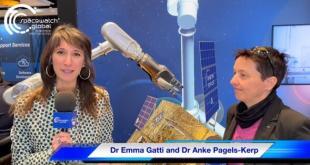
Astronauts spending time in space experience significant deconditioning of their bodies due to the reduced gravity environment. Their muscles become smaller and weaker, and their bones lose density.
The ‘bedrest study’ is supported by the European Space Agency (ESA), NASA and German Aerospace Centre (DLR). It will take place until December 2019 at the German Aerospace Centre’s ‘envihab’ facility in Cologne.
In total, 24 participants will spend 60 days in bed, where they will continuously lie in a head down tilt position. Their bodies will decondition during this time. During the bedrest period, participants will be exposed to artificial gravity for 30 minutes each day using the ‘short arm centrifuge’ at the bedrest facility. This piece of equipment spins the participants so that they are pulled down onto their feet, thus simulating the gravitational loading normally experienced when standing up against Earth’s gravity.
A team from Northumbria University’s Aerospace Medicine and Rehabilitation Laboratory, led by Professor Nick Caplan, was selected as one of six European Space Agency (ESA) and three NASA projects to take part in the bedrest campaign. Their study is funded by the UK Space Agency. Professor Caplan and his team are interested in spinal postural deconditioning, an issue relevant not just to astronauts, but also to people on Earth with low back pain and age-related problems with balance.
The study will use the human centrifuge to explore the effectiveness of daily exposure to artificial gravity in preventing spinal problems from developing. It will also test the effectiveness of a rehabilitation device – which resembles a customised gym cross trainer and is known as the Functional Re-adaptive Exercise Device (FRED) – in the early weeks following the 60 day bed rest period.
The FRED has been investigated for a number of years by the Northumbria team, in collaboration with the ESA Space Medicine Team, as a potential rehabilitation tool for astronauts after they return to Earth.
Professor Caplan said: “The bedrest study is providing an ideal platform for us to determine how suitable our device is for use in the rehabilitation of astronauts when they have spent time aboard the International Space Station in microgravity.
“We will be using advanced neurophysiological and medical imaging techniques to understand how the spinal postural muscles adapt to simulated microgravity and determine the effectiveness of a rehabilitation programme designed for use not just in astronauts, but also in populations on Earth, such as people with low back pain or those with postural instability.”
Science Minister Chris Skidmore said: “By learning about how to tackle muscle wasting in astronauts who experience zero gravity in space, this pioneering research hopes to lessen the impact on future spaceflights, something which will be particularly important if we ever send humans on the long journey to Mars. It has benefits on Earth too, helping the thousands of patients who develop muscle weakness from lengthy stays in a hospital bed.
“We will need to embrace new technology like this to meet the needs of our ageing society, which is why through our modern Industrial Strategy, this Government is giving the biggest boost to R&D funding in UK history.”





